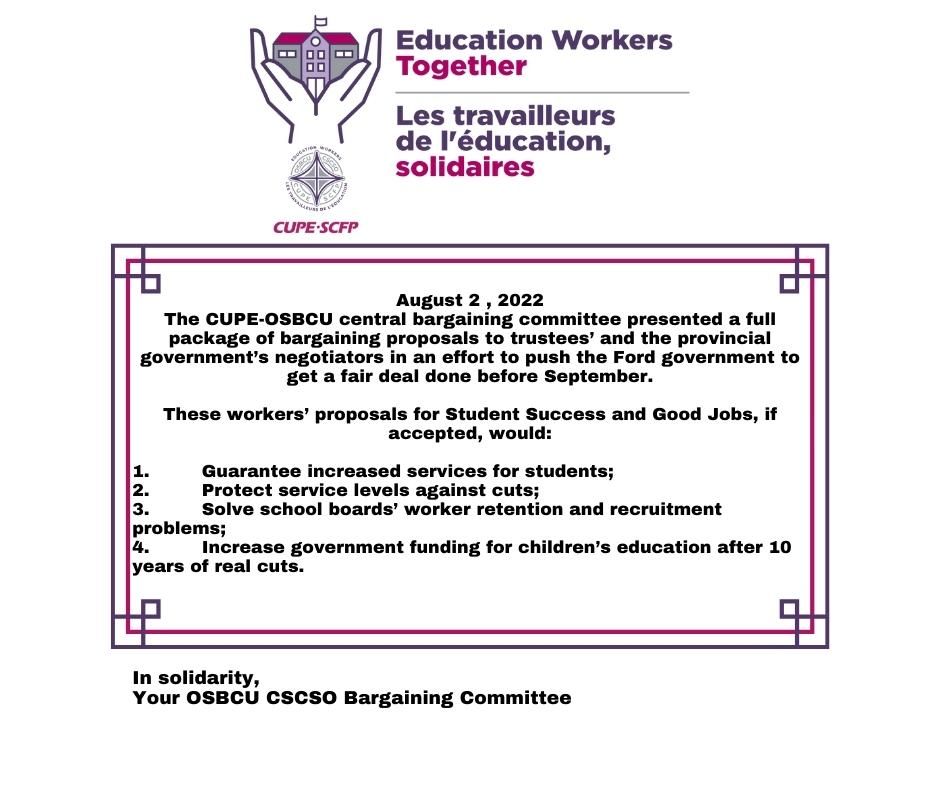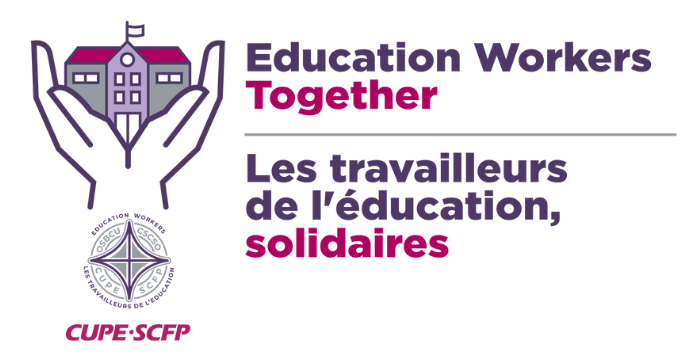Both sides remain hopeful productive progress can be made before the start of the school year.
Laura Walton, president of the Candian Union of Public Employees Ontario School Boards Council of Unions, said the unions have been ready to go since serving notice to bargain last month.
“We’re hearing a lot from the premier and the (education) minster about stability and, let’s be clear, we want stability as well. It’s why we’re fighting for services,” said Walton. “We see summer as a really great way to get in and get this worked on before school starts.”
Bargaining will begin with CUPE, which represents about 55,000 educational workers in Ontario, on July 18, the union representing French-board teachers July 19, Ontario Secondary School Teachers’ Federation will follow on July 20 and Ontario English Catholic Teachers’ Association July 21.
Walton said there are two pressing issues for education workers they want addressed: a “real wage increase” and service security in schools.
The union represents a diverse group of workers which includes education assistants, maintenance workers, custodians, clerical and early childhood educators. Walton said the average salary is about $39,000 per year.
“The majority of them are working multiple jobs in order to make ends meet so essentially subsidizing the work they do in the schools with alternative work so they can continue working in the schools,” she said.
“Throughout the pandemic, and you see even this month inflation being seven per cent, it disproportionately impacts low-wage earners … every day they are losing money as a result of multiple years of wage legislation.”
The current collective agreement has no job security after Aug. 30, which means boards can “cut any position they wish,” said Walton, adding that could lead to a reduction in services students and families “really, really rely on.”
In accordance to the School Boards Collective Bargaining Act, issues pertaining to wages, benefits, sick leave and vacation entitlement are negotiated at the central table. Other matters such as seniority, scheduling (administrative matters) are discussed at the local level, with individual school boards.
CUPE Local 4156 president Keith Levere said wages are at the top of the list for Niagara members. Non-union members of District School Board of Niagara received a $4 to $9 an hour increase, but Levere said union members “have not received anything besides the one per cent that was given from Bill 124.”
Levere said the union also wants to keep all full-time workers working. The amalgamation of schools means the number of support workers employed decreases, while the numbers of students — and, therefore, the workload — goes up.
“We want to see that the employer will keep the numbers of our secretaries, ITs, library workers and custodians up to a higher level so the needs of the student come first,” said Levere.
In a statement, Education Minister Stephen Lecce said it’s the province’s priority to ensure students are back in class, with the “full school experience, which is critical to their mental and physical health.”
He said the ministry is focused on “landing a deal that keeps students in class without any disruptions, ensuring that students can catch up on their studies and graduate with the skills they need for the jobs of the future.”
Karen Littlewood, president of the 60,000-member secondary teachers’ union, said the needs for its teachers and education workers is the same as it was three years ago. Members are looking for a cost of living increase because the one per cent cap built into Bill 124 “doesn’t keep up with all of the increasing costs.”
“I know the premier has said that he loves teachers and it will definitely be more than one per cent, but that’s all we know right now,” said Littlewood. “As we head into bargaining, we don’t really know what’s going to be the offer across the table.”
Last week, the unions were informed by the Ministry of Education the province could seek a four-year contract rather than the usual three-year term. Walton said that could change the landscape of the bargaining process.
“It’s very interesting that it’s almost unilateral change … we have to think why is this happening,” she said, adding the four-year term ensures bargaining won’t take place prior to the next provincial election.
“I hope the ministry is understanding that by making it a four-year term, we need to make sure that we are able to have what folks will need in the next four years.










